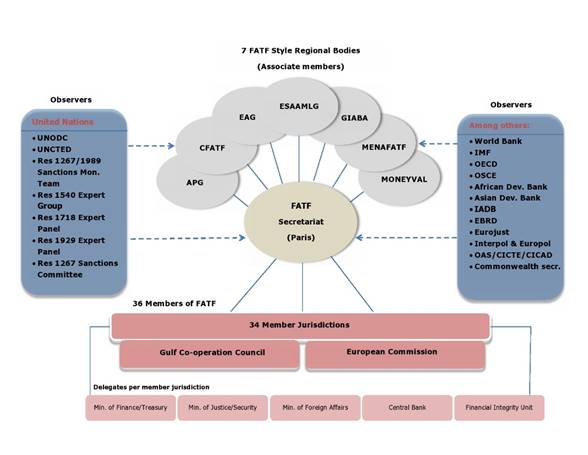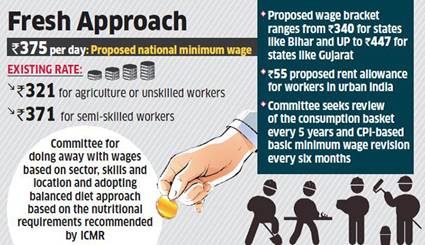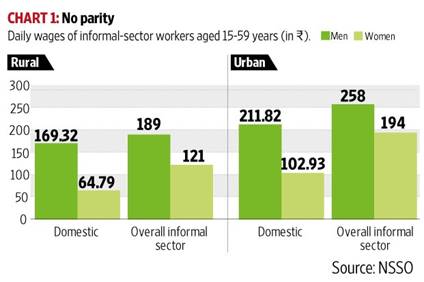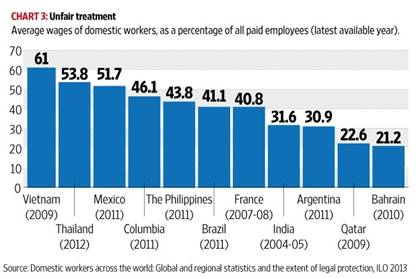



Curb funding of terror or face blacklist: Pakistan is warned
In a four-month breather for Islamabad, the Financial Action Task Force (FATF) decided to keep Pakistan on the Grey List, but warned that it will be put on the Black List if it does not control terror funding by February 2020.
Earlier, Pakistan was placed on the Grey List in June last year and given a plan of action to be completed by October 2019 or face the risk of being placed on the black List along with Iran and North Korea.
- Pakistan addressed only five of the 27 tasks given to it to control funding to terror groups like the Lashkar-e-Taiba and Jaish-e-Mohammad.
- An objective assessment of Pakistan’s progress in implementing its action plan was obtained, including in connection with situations of other countries.
- FATF noted the insufficiency of Pakistan’s implementation as “serious concerns”.
- The immediate blacklisting of Pakistan did not garner the consensus of all FATF members as the most effective response.
- The compliance requirement is quite strict — it asks for “significant and sustainable progress”, “across the range”.
- It is clear that the FATF will take action if progress cannot be established.
- China, Turkey and Malaysia have resisted Indian efforts to put Pakistan on Black list.
- China and Turkey pushed to give Pakistan a “little more time” to fulfil its commitments.
- If Pakistan continues on the Grey List or is put in Dark Grey List, it will be very difficult for the country to get financial aid from the IMF, the World Bank and the European Union, making its financial condition more precarious.
- Such action could include calling upon global financial institutions to give special attention to business relations and transactions with Pakistan.
- The Financial Action Task Force (FATF) is an inter-governmental body established in 1989 by the Ministers of its Member jurisdictions.
- The objectives of the FATF are to set standards and promote effective implementation of legal, regulatory and operational measures for combating money laundering, terrorist financing and other related threats to the integrity of the international financial system.
- The FATF has developed a series of Recommendations that are recognised as the international standard for combating of money laundering and the financing of terrorism and proliferation of weapons of mass destruction.

The 36 countries include mostly developed Western nations, but also China, Hong Kong (China), Malaysia, and Turkey.
- Moving out of grey list requires at least 15 out of 36 votes.
- Resisting to black list requires three votes minimum.
India is a voting member of the FATF and APG, and co-chair of the Joint Group where it is represented by the Director General of India’s Financial Intelligence Unit (FIU).
Two groups of the Kuki militants: the Kuki National Organisation (KNO) and the United People’s Front (UPF) have sought the intervention of Prime Minister Narendra Modi to subdue the rising tension between the Kukis and the Nagas in Manipur.
- All Kuki villages had install memorial stones with the inscription, “In defence of our ancestral land and freedom”, in remembrance of their ancestors who fought the British during the war.But Naga bodies objected to the Kukis installing these stone memorials on the Naga’s ancestral land.
- The Nagas claimed that the Kukis have been trying to distort history as there has been no “Anglo-Kuki War” but a “Kuki Rebellion” in 1917.
- The Nagas conveyed to the state government to take appropriate steps such that the history of Manipur is not distorted.
- The Manipur government ordered that the stone memorials be taken down.
- For administrative and logistical ease, the state of Manipur was divided into four areas: Imphal, Churachandpur, Tamenglong (that was inhabited by the Kukis, KabuiNagas and KatchaNagas) and Ukhrul (that was inhabited by Kukis and the TangkhulNagas).
- The Kuki chiefs who were not used to any bureaucratic control in the earlier now had to function bureaucratically.
- Settlement of Kukis in Naga villages also became cause of tension.
- The relationship between the two worsened during the colonial period and reached a low point during the Anglo-Kuki war, referred to as a “dark period” in the oral history of the TangkhulNagas.
- Essentially, identity and land govern their ethnic conflict.
The minimum wages in the national capital are set to rise with the Supreme Court on Friday allowing the Delhi government to notify the enhanced rates, which will apply to workers in the national capital.
- Minimum wages set the floor for wages that workers are legally entitled to.
- In Delhi, the rates have been fixed by taking into account basic that a family of four has to spend on food, clothing, housing, power, fuel and education to lead a life with dignity.
- Analysis of minimum wage data also shows a systemic gender bias. The male-dominated job of security guards pays better than being a domestic worker, most of whom are women.
- Minimum wages vary from state to state as per their economic development.
- Different minimum wages for the same occupation across different states, in addition to a wide range between the lowest and highest minimum wages.
- Coverage (1,915 minimum wages are defined for various scheduled job categories across various states).
- Lack of uniform criteria for fixing the minimum wage rate.
- One in every three wage workers in India has fallen through the crack” and is not protected by the Minimum Wages Act, 1948.
- Using the current non-statutory National Floor Level Minimum Wage (NFLMW) – Rs 176 per day – as a benchmark, the economic survey shows that even in 2018-19, some states have minimum wages even below the NFLMW.

- Suggestions include proper designing, clarification of set goals and effective enforcement if the minimum wage system is to play a meaningful role.
- The survey also says that international experience has shown that simple systems are most effective and complex systems least effective.
- The Economic survey endorses the Code on Wages Bill, one of the four proposed labour codes to replace the existing 44 labour laws. The Code on Wages Bill seeks to merge the Minimum Wages Act, 1948, the Payment of Wages Act, 1936, the Payment of Bonus Act, 1965 and the Equal Remuneration Act, 1976 into a single piece of legislation.
- Setting a NFLMW that can vary across the five geographical regions.
- The survey recommends the development of mechanisms to adjust minimum wages regularly and more frequently.
- The better and more extensive use of technology and grievance redressal through an easy to remember toll-free number to register grievances on non-payments of the statutory minimum wages.

- Domestic worker is a person who is employed in any household on a temporary or permanent basis to do the household work. Many resort to domestic work because of decline of employment opportunities in the agriculture and manufacturing sectors.
- Domestic work as an economic activity is too vast and employs too many to remain unregulated.
Need for Protection of Domestic Workers
- Since domestic workers belong to the unorganized sector, there are no laws safeguarding their rights – no minimum wage requirements, no health or insurance benefits, and no job security whatsoever.
- Most of these are from vulnerable communities – Adivasis, Dalits or landless Other Backward Classes (OBCs). Nearly all of them are migrant workers. In addition, an overwhelming number are women. This makes them easy to replace, and easier still to exploit.
- Minimum wage provisions are important instruments to protect the most vulnerable and lowest-paid workers – such as domestic workers – from unduly low wages.
- A minimum wage recognizes the basic contribution of domestic workers to homes and societies, and is a key means of ensuring the principle of equal pay for work of equal value.

- While several legislations such as the Unorganized Social Security Act, 2008, Sexual Harassment against Women at Workplace (Prevention, Prohibition and Redressal) Act, 2013 and Minimum Wages Schedules notified in various states refer to domestic workers, there remains an absence of comprehensive, uniformly applicable, national legislation that guarantees fair terms of employment and decent working conditions.
- About half the states have included domestic workers as labourers under the Minimum Wages Act, which sets out terms of payment, hours of work and leave. Yet, this law is grossly inadequate.
- The law does not, for instance, require domestic workers and employers to register with any authority, which is crucial for monitoring whether both parties are fulfilling their contractual obligations and for adjudicating conflicts.
- Absence of proper documentation, which also increases their reliance on employers to access social security benefits. As employment is largely through word of mouth or personal referrals, employment contracts are rarely negotiated, leaving the terms of employment to the whims of the employer.
- Unlike work in a formal setting, domestic work is not guided by clear and agreed production or output goals.
- Furthermore, privacy norms do not bode well with the idea of regulations (labour inspectors) entering private households and ensuring regulations.
- However, discussions are underway on a national policy for domestic workers, with the aim to protect the domestic workers from abuse, harassment, violence and guarantee them rights in the matter of social security and minimum wages.

Reference: https://indianexpress.com/article/explained/minimum-wages-new-delhi-supreme-court-6076148/

© 2026 iasgyan. All right reserved